There are many reasons why certain plants should not be planted together. Sometimes it is a matter of height. For example, a tall tomato plant will steal the sun from smaller plants nearby. Or it could be a matter of moisture. Mint, a water seeking plant, and a desert cactus will not do well next to each other since they have conflicting needs.
Another problem is plants that are susceptible to the same diseases. For example, I live in a very humid environment and have problems with a fungus on my squash. If I plant melons too close to the squash, they will also be infected. By keeping them separate, the melons survive long enough to produce a crop.
Additionally, there are plants that chemically damage other plants or prevent their growth. These plants are called allelopathic plants. They leave behind chemicals that can harm or kill certain other plants. Many of the plants mentioned in this article are allelopathic. You may be planting these plants together and then wondering why your plants aren’t doing well, especially if you have a small garden where the plants are all snuggled in together.
Allelopathic plants make planning your garden more difficult. Most home gardeners have not considered allelopathic chemicals, and simply plant wherever they have space. I suspect that these chemicals are probably the source of many of my crop failures over the years. Now that I know about these plants, my crops are more reliable.
Related: How To Make A Mini Root Cellar In Your Backyard In Less Than Two Hours
Here are some plants that do not grow well when planted together:
Potatoes
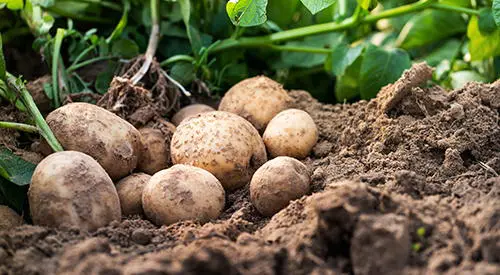 Potatoes have problems with many plants. I tend to stick them off in a far corner of the garden because they don’t grow well with many of the plants in my garden.
Potatoes have problems with many plants. I tend to stick them off in a far corner of the garden because they don’t grow well with many of the plants in my garden.
Potatoes and tomatoes are members of the same family, but they do not grow well when planted together. Potatoes slow the growth of the tomato plant and themselves become more susceptible to Phytophthora, known as potato blight, when the plants are together. When rotating plants, do not plant potatoes or tomatoes where the other grew the previous year.
Potatoes also don’t play well with cucumbers, melons, tomatoes, squash, turnips, or sunflowers.
Beans and Peas
Both peas and beans have negative effects on some plants including all kinds of peppers, sweet and hot. Beets are also affected by pole beans of all kinds.
Broccoli and Cauliflower
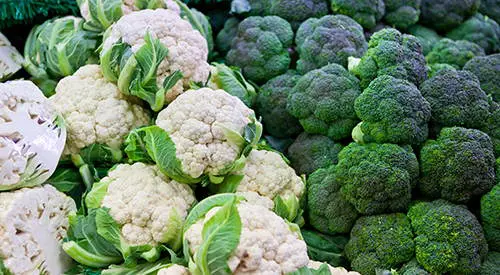 Neither broccoli or cauliflower will grow well near peppers, strawberries, tomatoes, and squash of all types, including zucchini, yellow squash, and winter squash like pumpkins.
Neither broccoli or cauliflower will grow well near peppers, strawberries, tomatoes, and squash of all types, including zucchini, yellow squash, and winter squash like pumpkins.
Cabbage and Cauliflower
When cabbage and cauliflower are planted together, they are more likely to be affected by Plasmodiophora brassicae, also known as club root. The fungus causes the roots to swell and become unable to take up water and the plant quickly dies. Radish and tomato also do not do well near cabbage and cauliflower.
Asparagus
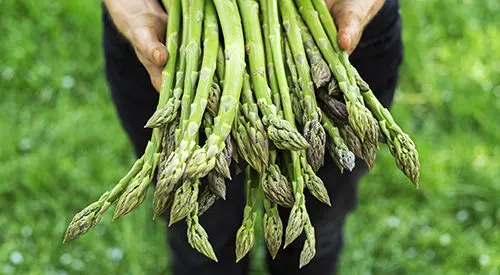 Asparagus does not like other plants growing too close, so give the bed a little space. It is especially vulnerable to poor growth when planted next to onions, garlic, and potatoes.
Asparagus does not like other plants growing too close, so give the bed a little space. It is especially vulnerable to poor growth when planted next to onions, garlic, and potatoes.
Brussel Sprouts
Another cruciferous vegetable, brussels sprouts don’t grow well next to strawberries or tomatoes.
Kohlrabi
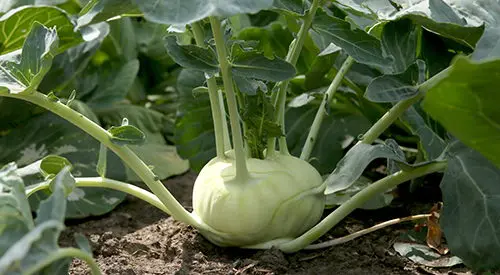 Kohlrabi is a cruciferous vegetable in the cabbage family and like other members of the family it does not like to be planted near pole beans, tomatoes, or strawberries.
Kohlrabi is a cruciferous vegetable in the cabbage family and like other members of the family it does not like to be planted near pole beans, tomatoes, or strawberries.
Carrots
Carrots don’t grow well when planted too close to dill. I learned this one the hard way. I had conditioned the soil perfectly for those carrots, but they ended up small and malformed. The dill had a very noticeable effect on the crop. Now, I know to keep them separate. Carrots don’t like to share space with parsnips, either.
Celery
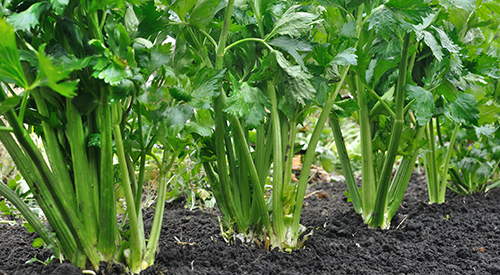 Celery is a little difficult to grow under normal circumstances, but for best results, it should never be planted near potatoes or parsnips.
Celery is a little difficult to grow under normal circumstances, but for best results, it should never be planted near potatoes or parsnips.
Corn
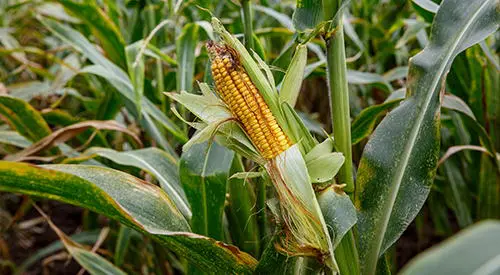 Corn and tomatoes should be separated due to their susceptibility to a common fungal infection. If your tomatoes become infected, they will infect the corn if they have been planted too close together. Both plants are also susceptible to cotton bollworm, also known as corn earworm and tomato fruit worm, another good reason to keep them apart.
Corn and tomatoes should be separated due to their susceptibility to a common fungal infection. If your tomatoes become infected, they will infect the corn if they have been planted too close together. Both plants are also susceptible to cotton bollworm, also known as corn earworm and tomato fruit worm, another good reason to keep them apart.
Cucumbers
Cucumbers are one of the first vegetables that many new gardeners plant and they usually give good results. However, they do not like to be planted near potatoes, tomatoes, cauliflower, or any of the strong aromatic herbs like cilantro, basil, rosemary, thyme, or lavender.
Onions and The Allium Family
Onions, garlic, leeks, and shallots have a discouraging effect on beans and peas. When planted nearby, plants in the Allium family, like onions, stunt the growth of beans and peas. But, beans and peas have their own effects on other plants.
Beets
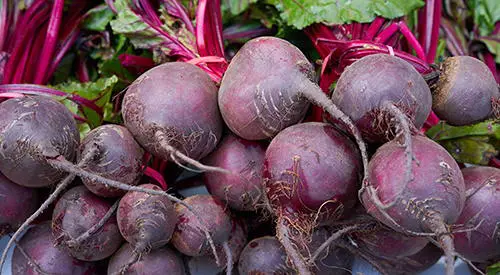 Beets do not grow well near mustard plants or any member of the bean or pea family.
Beets do not grow well near mustard plants or any member of the bean or pea family.
Sunflowers
Sunflowers emit a chemical from their roots that prevents nearby plants from growing and competing for nutrients. This chemical affects an area of at least 12 inches around the plants. The seed shells also contain toxic chemicals that will kill grass and other plants, so harvest the seed heads before the seeds begin to drop. Don’t plant other plants within 12 inches of sunflower plants. Also be aware that they grow very tall and can shade out sun-loving plants.
Marigolds
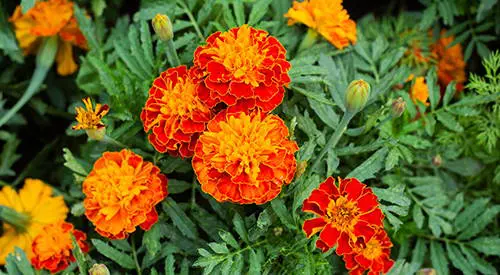 Marigolds are a popular addition to the vegetable garden because they keep away so many pests. However, they have a detrimental effect on beans and peas. Pole beans, bush beans, and peas should be planted far away from the marigolds.
Marigolds are a popular addition to the vegetable garden because they keep away so many pests. However, they have a detrimental effect on beans and peas. Pole beans, bush beans, and peas should be planted far away from the marigolds.
Planning your garden is hard enough when you are limited in size and adding this information will make it even more difficult. However, it is work considering the effects that plants have on each other when you draw up your garden plan. Otherwise, you may end up with a disappointing yield and never understand why.
Lettuce
Lettuce is easy to grow when planted away from beans and beets. Surprisingly, they also do not like to be near parsley.
Melons
Melons are also susceptible to funguses caught from squashes and should not be planted near potatoes or cucumbers.
Tomatoes
Cucumbers, cilantro, and tomatoes are delicious together, but they do not like to grow too close together.
You may also like:
An Insanely Effective Way to Build a 5 Year Food Stockpile (Video)
DIY Stove Made From Used Tire Rims

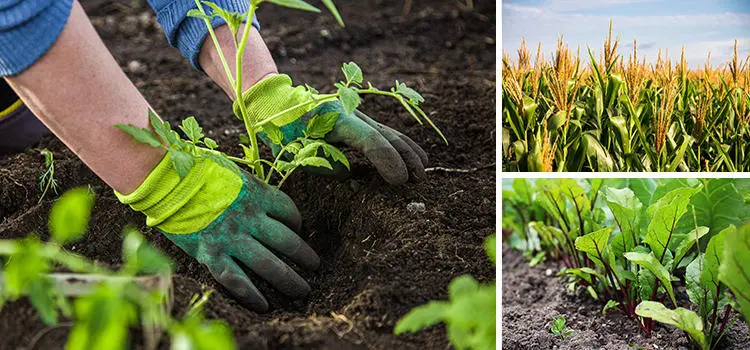
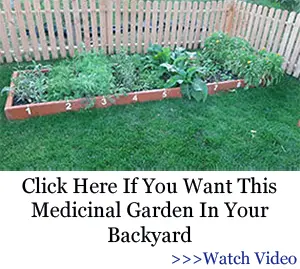

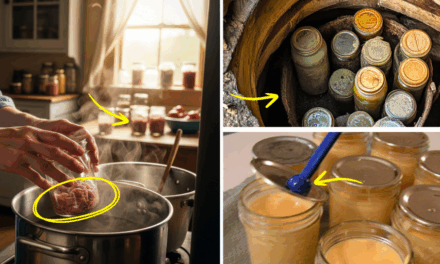

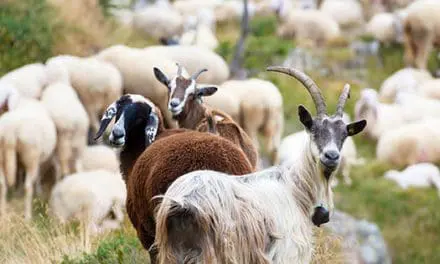
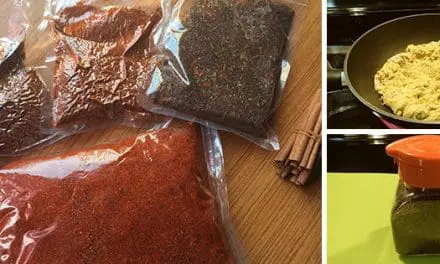







WONDERFULL !!!!!!!!
This is very helpful! Thank you. Is there a place where I could find a ‘blueprint’ for how a garden space could be planned?
I need this, too.
Me too!
almanac.com has a garden planner. I use it every year. it also lets you know the best companion plants to plant with what.
What is the definition of close? 1ft, 3ft?
I would also like some more
Advise on spacing details as I have about an acre and do not use box beds. I’m sure box beds would help with this but I would like to not use them because I use small tractor to maintain and cultivate.
Can you please tell us what plants ARE good together? Thank you!
What a helpful little blog! I have joined other groups when I bought something, but most of their ‘emails were junk. Thanks for one I will look forward to.
This kind of information would best be suited to look at it from the positive side and show everyone a blueprint for success. It leaves everyone confused and several have asked for any press if ideas on what to plant together but I’m not seeing anything on that yet. I hope you will respond
alvindw@yahoo.com I would like both, Companion & noncompanion. PLEASE!
I have studied companion planting for years and never found definitions for separation guidelines. Is it different for in-ground gardens vs raised beds because of the separation of the root systems? How far should they be separated? My first garden years ago produces a bumper crop, but ever since then, I have had trouble. I have tried crop rotation, soil amendments, rest years, and planting back in the same design as the best year of production…all without success. Can anyone help me with this please? Thank you.
Maybe soil test? More compost?
I planted potatoes this year in a part of my garden that has been vacant of plants for several years. I planted winter squash plants along just one side of the potatoes. they are both doing fabulously well, but I will not plant either of those in the same spot next year. The location of this particular part of my garden only gets sun in the afternoon but that doesn’t seem to bother the plants. I would also love a chart showing the best companion plants.
Is there any way to print this out? I bought the book and got it yesterday but I don’t see this in the book. Such awesome information. Thank you!!!
Horseradish is a great repellent for potato bugs. So plant your spuds with horseradish nearby.